energy Polarpedia
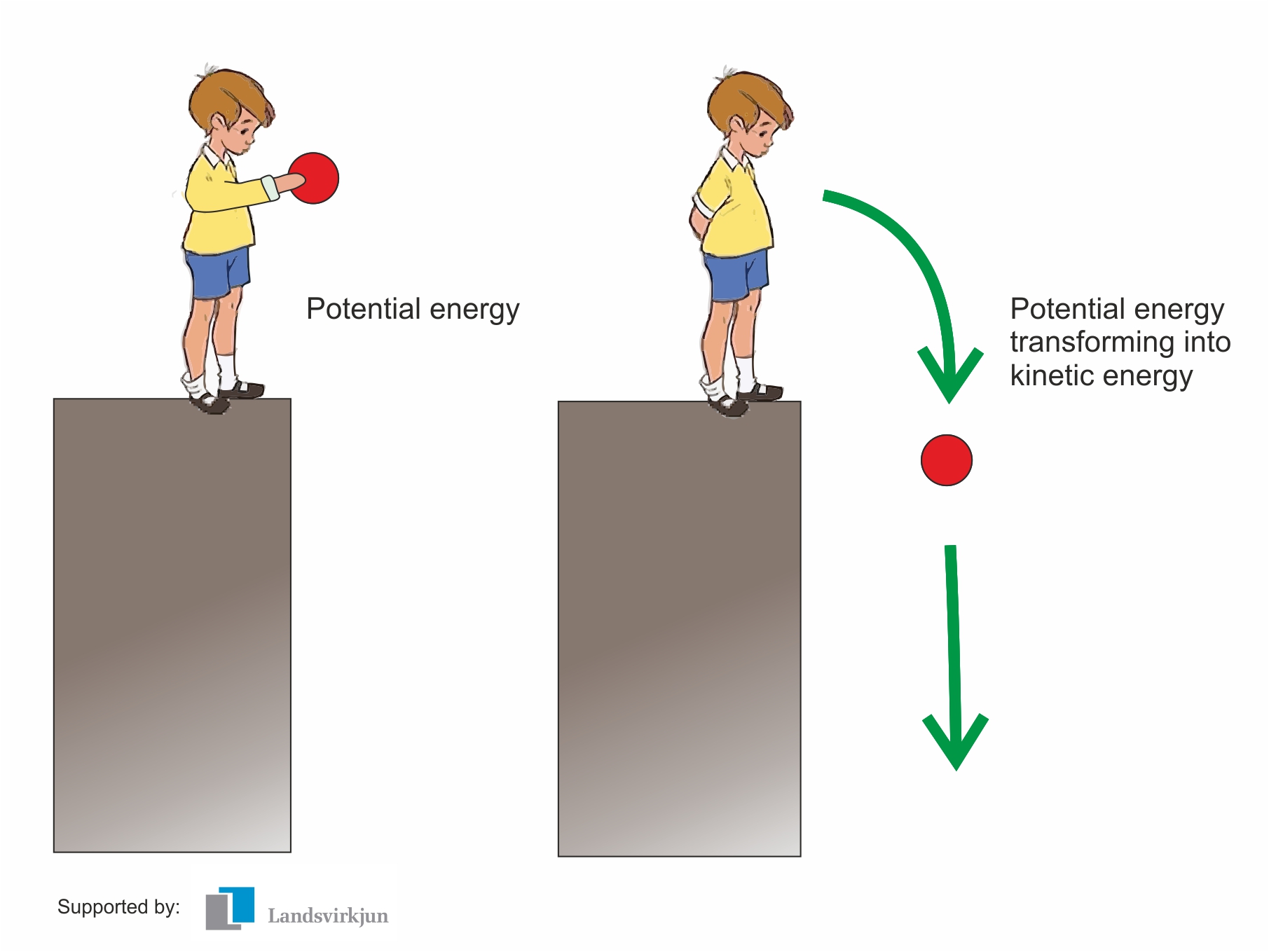
e. In physics, potential energy is the energy held by an object because of its position relative to other objects, stresses within itself, its electric charge, or other factors. [1] [2] The term potential energy was introduced by the 19th-century Scottish engineer and physicist William Rankine, [3] [4] [5] although it has links to the ancient.
Potential Energy Energy Elastic Energy, PNG, 1154x777px
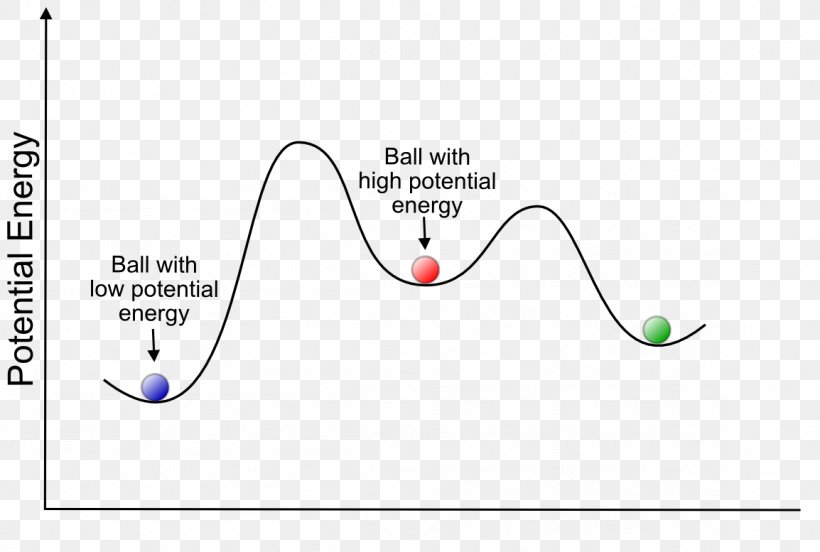
Key points: Potential energy is energy that has the potential to become another form of energy. An object's potential energy depends on its physical properties and position in a system. Potential energy comes in many forms, such as: Gravitational potential energy due to an object's mass and position in a gravitational field.
Find The Equation Of Potential Energy In A Gravitational Field

Elastic Force. We take precisely the same steps to draw the energy diagram for a mass on a spring, but there are some differences, such as two forbidden regions and a different slope for every position, and there is one additional feature for this potential that doesn't exist for the case of gravity: an equilibrium point.. Figure 3.7.3 - Energy Diagram for Object Influenced by Elastic Force
Gravitational Potential and Energy GCSE Physics Doodle

This chemistry video tutorial provides a basic introduction into endothermic and exothermic reactions as well as the corresponding potential energy diagrams..
Potential Energy Calculator [100 Free] Calculators.io
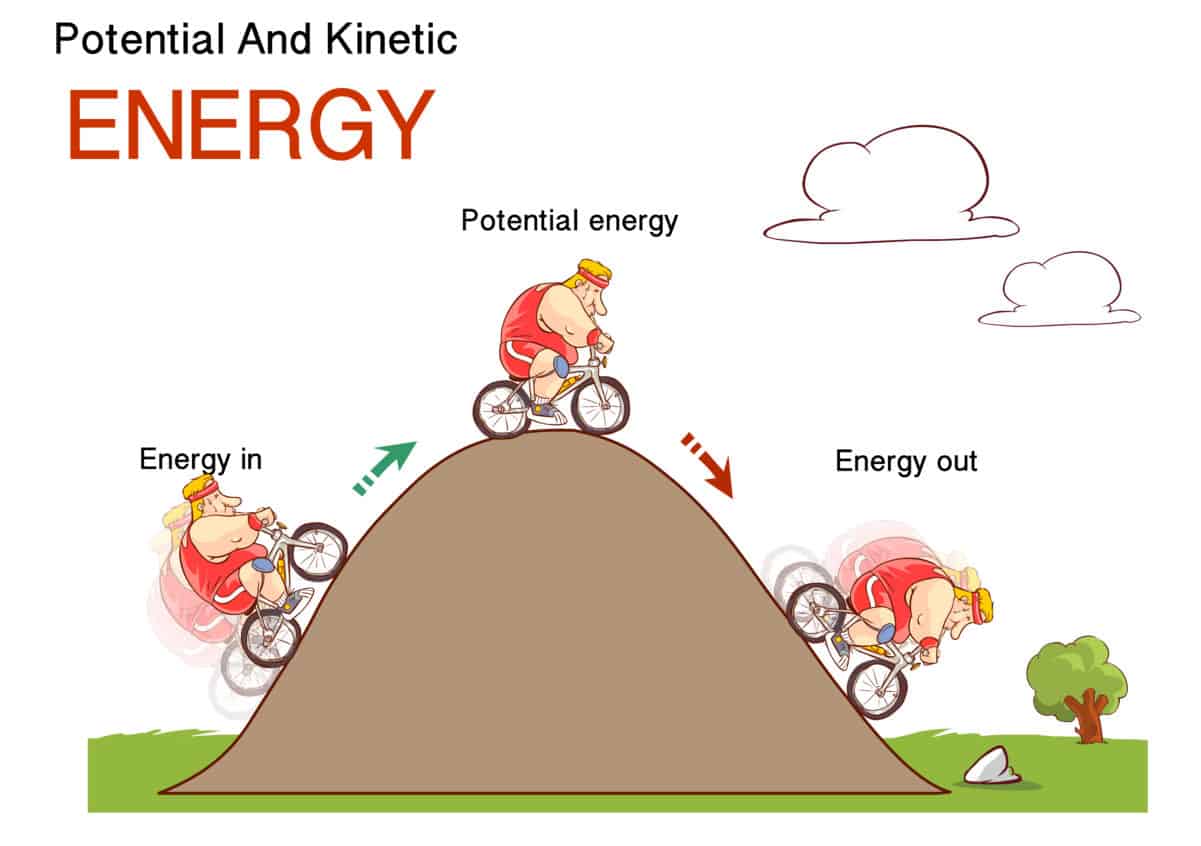
Electric Potential Energy Diagram. Lastly, let's talk about electric potential energy. Electric potential energy is the potential energy ("stored" energy) a charge has when moved by an electrostatic force. We can use the formula below to calculate electric potential energy. U = k q 1 × q 2 r.
Electric Potential Energy Potential Difference Physics

This is like a one-dimensional system, whose mechanical energy E is a constant and whose potential energy, with respect to zero energy at zero displacement from the spring's unstretched length, x = 0, is U (x) = 12 1 2 kx 2. Figure 8.5.2 8.5. 2: (a) A glider between springs on an air track is an example of a horizontal mass-spring system.
Lesson Video Elastic Potential Energy Nagwa

The total potential energy of the system decreases for the exothermic reaction as the system releases energy to the surroundings. Figure 18.4.1 18.4. 1: A potential energy diagram shows the total potential energy of a reacting system as the reaction proceeds. (A) In an endothermic reaction, the energy of the products is greater than the energy.
Gravitational potential and energy Calculating energies

The formula to calculate elastic potential energy is: Ep = (1/2) * k * x^2. Where: - Ep is the elastic potential energy in joules (J) - k is the elasticity constant of the spring in newtons per meter (N/m) - x is the deformation of the spring from its equilibrium position in meters (m) 3. Electric potential energy (Ep):
Potential Energy Knowledge Bank Solar Schools
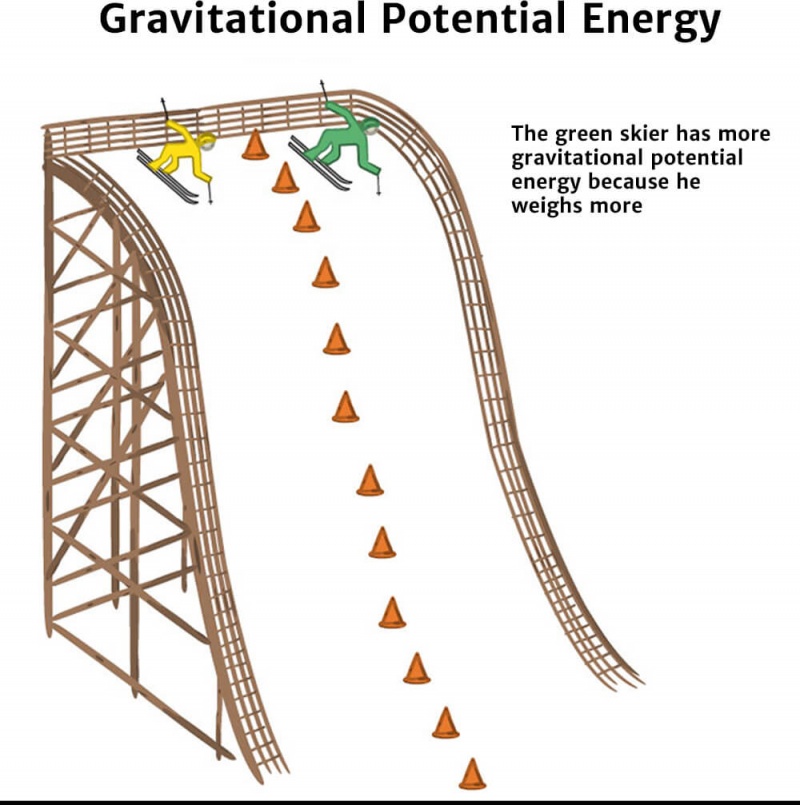
Figure 5.5.1 5.5. 1: A potential energy diagram shows the total potential energy of a reacting system as the reaction proceeds. (A) In an endothermic reaction, the energy of the products is greater than the energy of the reactants and ΔH Δ H is positive. (B) In an exothermic reaction, the energy of the products is lower than the energy of the.
What Is Potential Energy? Potential Energy Examples

1. Identify the general shape of the energy diagram Energy should conserve for any chemical reaction. The reaction in question is exothermic (releases heat) hence its products shall have chemical potential energies lower than that of its reactants- some of the potential energies have been converted to thermal energy during the reaction process.
HOW TO DRAW AND "POTENTIAL " ENERGY YouTube

Thus, we write the electrostatic potential energy as: PE(r) = kq1q2 r (11.5.5) (11.5.5) P E ( r) = k q 1 q 2 r. Let us think about the connection of the potential energy and force to conceptually understand the equation above. If the two interacting charges are both positive or both negative, then the potential energy is positive.
What is Potential Energy? (with pictures)

A potential energy diagram plots the change in potential energy that occurs during a chemical reaction. This first video takes you through all the basic parts of the PE diagram. Potential Energy Diagram Basics (PE Diagrams) Watch on
Potential Energy Knowledge Bank Solar Schools
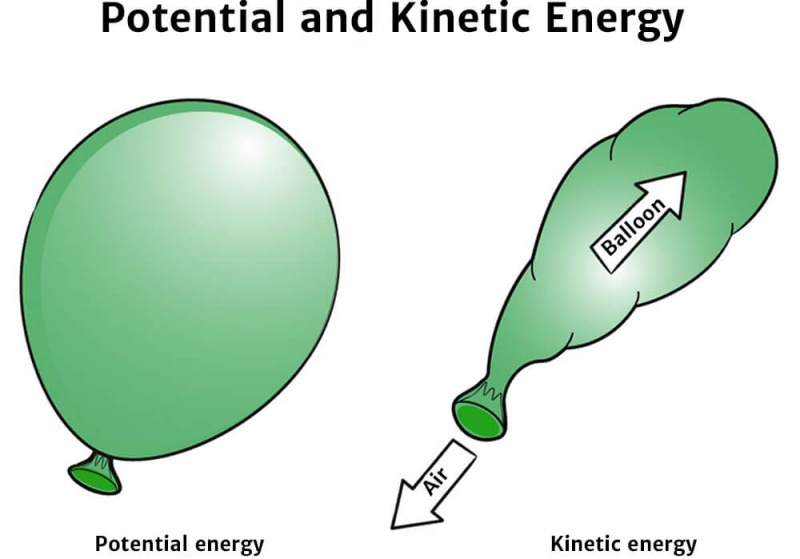
The total potential energy of the system decreases for the exothermic reaction as the system releases energy to the surroundings. Figure 10.4.1 10.4. 1: A potential energy diagram shows the total potential energy of a reacting system as the reaction proceeds. (A) In an endothermic reaction, the energy of the products is greater than the energy.
and potential energy explanation labeled vector illustration
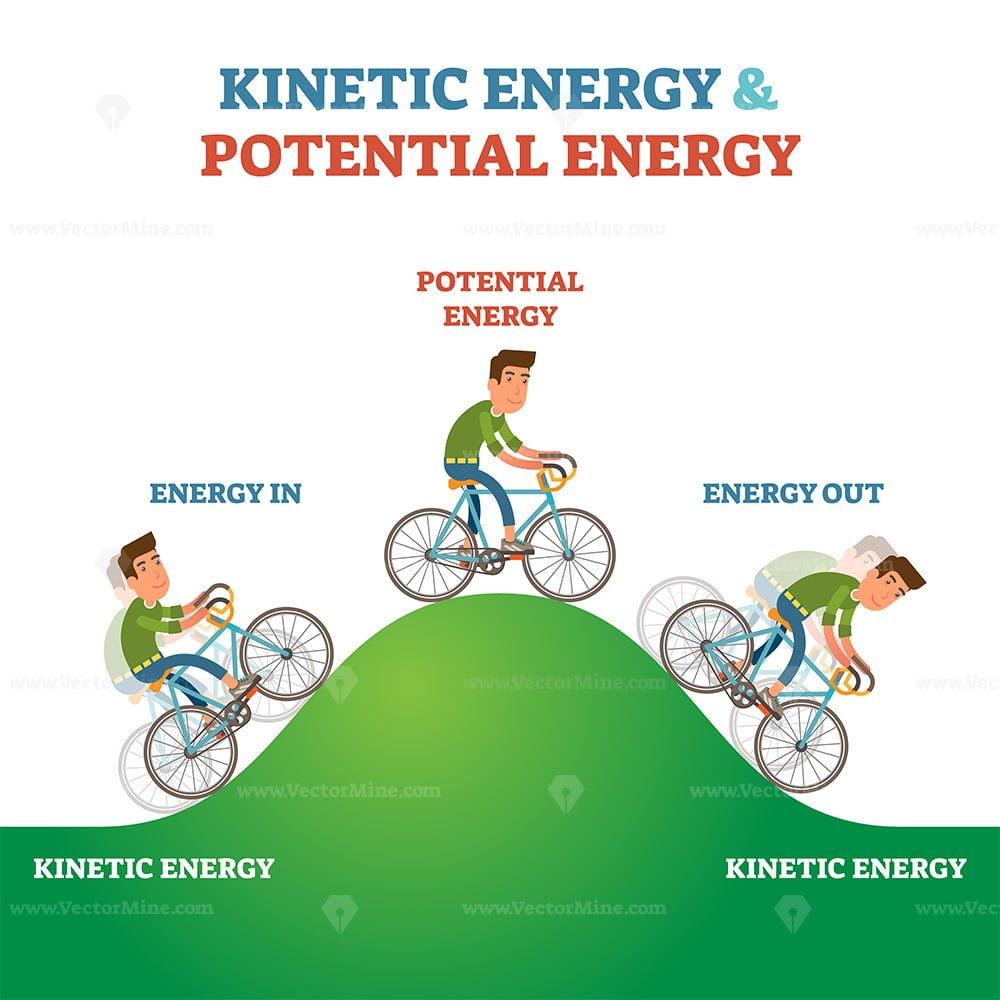
The Potential Energy Surface Captures the idea that each structure— that is, geometry—has associated with it a unique energy Since geometry changes are smooth, this idea creates a smooth energy "landscape" Chemistry becomes topology. Simplest Example is One-dimensional Standard Diatomic Bond Stretch rAB Dimensionality of the Generic PES
a man riding a skateboard on top of a wooden structure with the words

Potential energy is energy stored in a system of forcefully interacting physical entities. he SI unit for measuring work and energy is the joule (J). The term potential energy was introduced by the 19th century Scottish engineer and physicist William Rankine.
Misc Graphics NEEDMEDIA Potential energy, energy, Energy

The mechanical energy of the object is conserved, E= K+ U, E = K + U, and the potential energy, with respect to zero at ground level, is U (y) = mgy, U ( y) = m g y, which is a straight line through the origin with slope mg m g. In the graph shown in Figure, the x -axis is the height above the ground y and the y -axis is the object's energy.